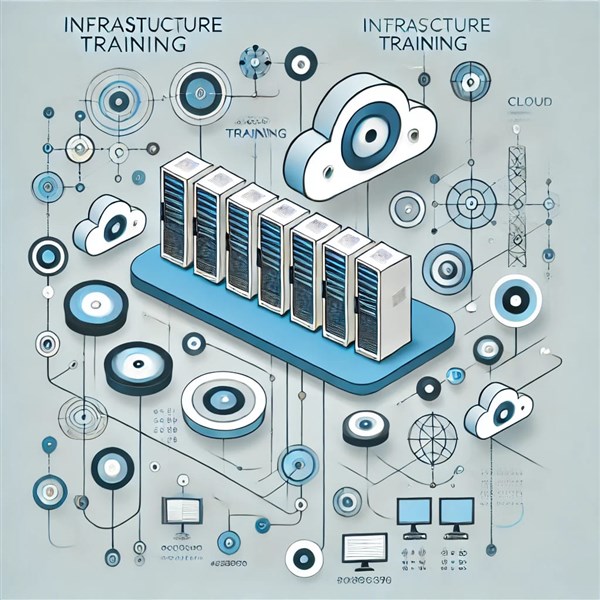Unable to find what you're searching for?
We're here to help you find it
In today’s always-on, digitally connected world, infrastructure is the foundation of everything — from mobile apps and corporate networks to global e-commerce systems and government services. And behind every seamless digital experience are skilled professionals who design, build, maintain, and scale the infrastructure that powers it.
That’s where infrastructure training comes in.
Whether you're starting your career in IT or leveling up into DevOps, cybersecurity, or cloud architecture, infrastructure training equips you with the core technical and strategic skills needed to succeed in modern IT environments.
In this blog, we’ll explore the top skills you’ll gain from infrastructure training and how they help you grow your career, improve systems reliability, and support digital transformation in any industry.
What You’ll Learn:
Why It Matters:
Networking is the backbone of infrastructure. Without a strong foundation in networking, it’s impossible to build secure, scalable systems. Training helps you understand how systems communicate and how to configure networks to ensure high availability and performance.
What You’ll Learn:
Why It Matters:
No infrastructure training is complete without deep familiarity with operating systems. This skill ensures you can deploy, secure, and maintain server environments across data centers and cloud platforms.
What You’ll Learn:
Why It Matters:
With businesses moving to the cloud at an accelerated pace, cloud infrastructure is no longer optional. You’ll learn to deploy scalable cloud resources, manage costs, and ensure resilience using best practices across leading platforms.
What You’ll Learn:
Why It Matters:
Security is a critical pillar of infrastructure management. Training helps you build systems that are resilient to attacks while ensuring regulatory compliance (e.g., GDPR, HIPAA, ISO 27001).
What You’ll Learn:
Why It Matters:
Modern infrastructure teams rely on code to manage infrastructure, enabling rapid deployment, repeatability, and reduced human error. This is a core DevOps skill that transforms traditional IT roles.
What You’ll Learn:
Why It Matters:
Containers have become standard for deploying modern applications. This skill allows you to package and deploy applications consistently, enabling microservices and cloud-native architectures.
What You’ll Learn:
Why It Matters:
Once infrastructure is deployed, it must be monitored and maintained. You’ll learn how to proactively detect issues, measure performance, and keep systems running smoothly.
What You’ll Learn:
Why It Matters:
Unplanned outages are expensive and reputation-damaging. Infrastructure training teaches you how to prepare for disasters, recover quickly, and build systems that minimize downtime.
What You’ll Learn:
Why It Matters:
Version-controlled, declarative configuration is essential in modern environments. These skills help maintain system consistency, reduce errors, and enable effective collaboration between teams.
What You’ll Learn:
Why It Matters:
Infrastructure professionals often work behind the scenes, but their work is critical to the entire organization. Strong communication and problem-solving skills amplify technical expertise and elevate your leadership potential.
Infrastructure training is ideal for:
Whether you're starting your tech journey or aiming for a senior engineering role, infrastructure training lays the technical foundation and career growth path you need.
|
Benefit Area |
Impact |
|---|---|
|
Career Advancement |
Prepares you for DevOps, SRE, cloud, or security roles |
|
Job Security |
Skilled infrastructure professionals are in high demand |
|
Certifications |
Helps you prepare for AWS, Azure, CompTIA, and Cisco credentials |
|
Team Impact |
Enables you to build, manage, and scale high-performing systems |
|
Salary Growth |
Infrastructure skills are linked to some of the highest IT salaries |
🧭 Final Thoughts
In the digital economy, infrastructure is more than just hardware — it's the strategic backbone of every product, service, and innovation. Effective infrastructure training not only sharpens your technical knowledge but also prepares you to tackle real-world challenges, lead transformation projects, and build resilient systems that scale.
From networking and servers to cloud platforms and automation, the skills you gain form a powerful toolkit that can support virtually any modern IT role.
✅ Final Takeaway:
If you want to future-proof your tech career, reduce operational risks, and enable digital growth, investing in infrastructure training is a smart, strategic move. It gives you the confidence and capability to manage the systems that keep the digital world running.
Koenig Solutions is a leading IT training company that offers a wide range of certification courses in top technology courses. Their Infrastructure Training course is designed to equip professionals with the skills they need to manage modern IT infrastructure effectively.
The course covers all the key areas of IT infrastructure, including network management, server administration, cloud computing, security management, and virtualization. The training is delivered by experienced professionals who have a deep understanding of the industry and its requirements.

Aarav Goel has top education industry knowledge with 4 years of experience. Being a passionate blogger also does blogging on the technology niche.










